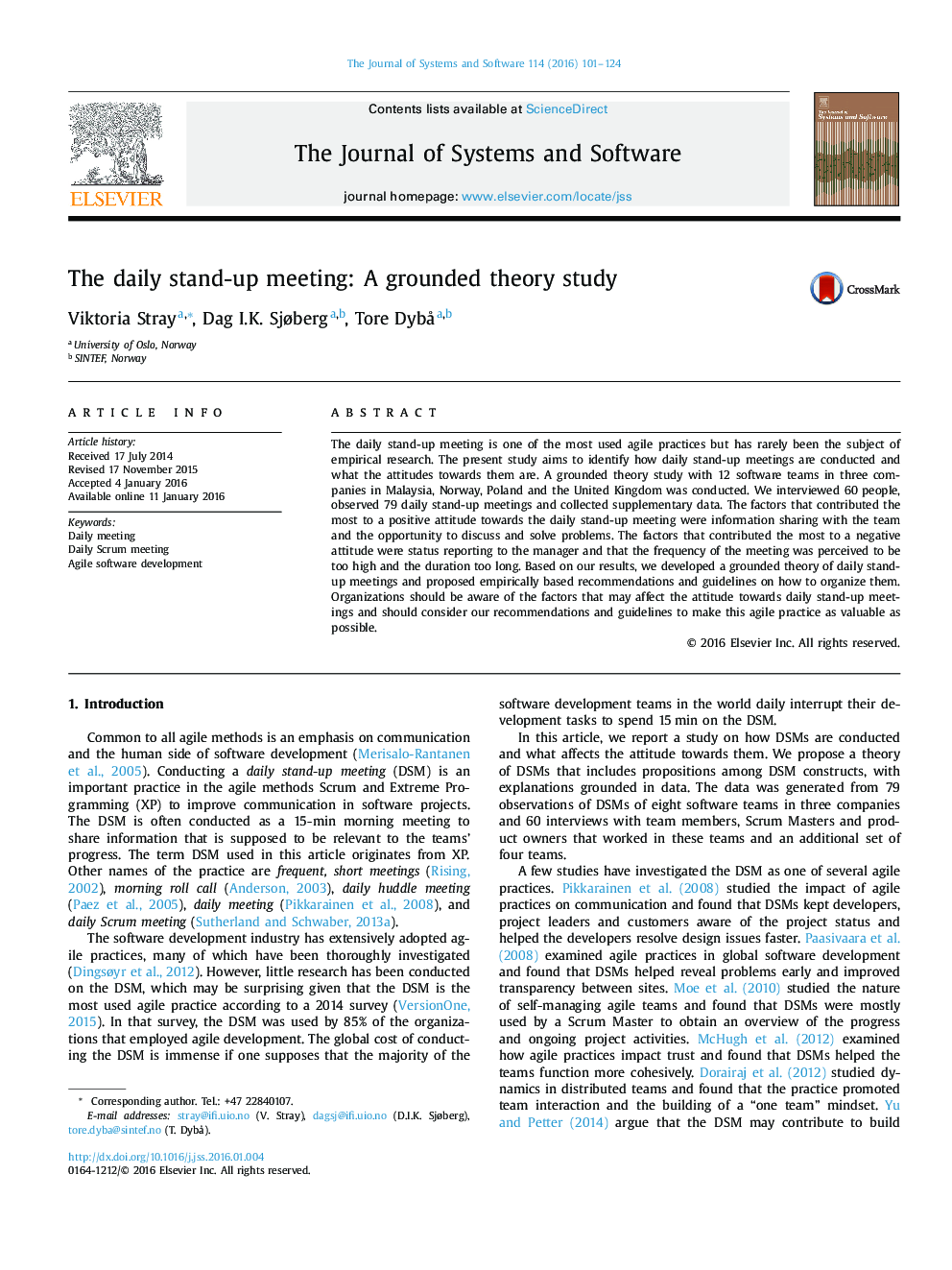| Article ID | Journal | Published Year | Pages | File Type |
|---|---|---|---|---|
| 461383 | Journal of Systems and Software | 2016 | 24 Pages |
•The first study fully devoted to the daily stand-up meeting in agile projects is reported.•Data from interviews with 60 people and observations of 79 daily stand-up meetings.•Benefits include information sharing and opportunity to discuss and solve problems.•The meetings were also perceived as a waste of time and an interruption of the workflow.•Organizations should use our results and guidelines to improve their daily meetings.
The daily stand-up meeting is one of the most used agile practices but has rarely been the subject of empirical research. The present study aims to identify how daily stand-up meetings are conducted and what the attitudes towards them are. A grounded theory study with 12 software teams in three companies in Malaysia, Norway, Poland and the United Kingdom was conducted. We interviewed 60 people, observed 79 daily stand-up meetings and collected supplementary data. The factors that contributed the most to a positive attitude towards the daily stand-up meeting were information sharing with the team and the opportunity to discuss and solve problems. The factors that contributed the most to a negative attitude were status reporting to the manager and that the frequency of the meeting was perceived to be too high and the duration too long. Based on our results, we developed a grounded theory of daily stand-up meetings and proposed empirically based recommendations and guidelines on how to organize them. Organizations should be aware of the factors that may affect the attitude towards daily stand-up meetings and should consider our recommendations and guidelines to make this agile practice as valuable as possible.
